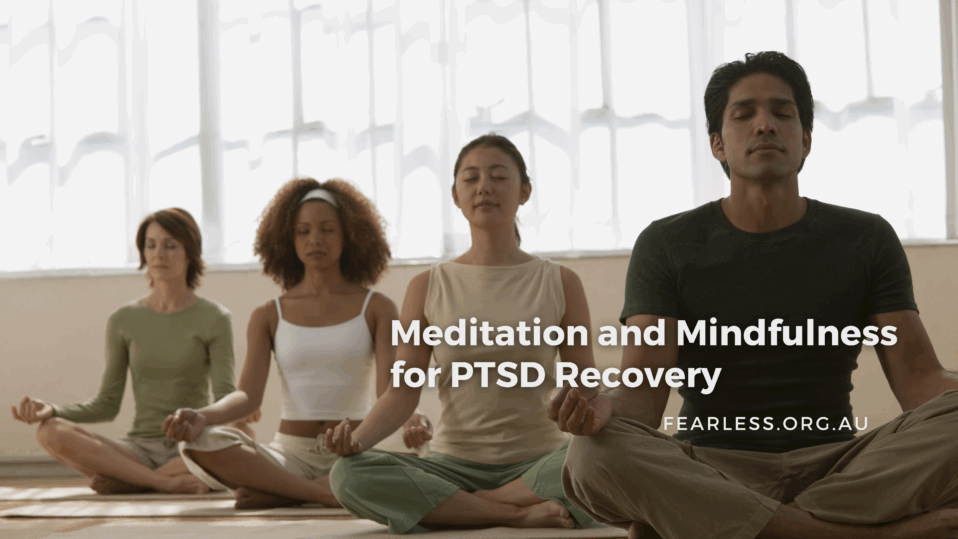Not all healing comes from medication or counselling alone. For many people living with PTSD, meditation and mindfulness provide gentle, practical tools to calm the nervous system and bring a sense of stability back into everyday life.
Why Meditation and Mindfulness Matter
PTSD often keeps the body on high alert. Meditation and mindfulness create moments of pause, helping the brain and body shift away from survival mode. This can reduce stress, support better sleep, and improve emotional regulation. Over time, these practices can help rebuild a sense of safety within yourself.
Simple Techniques to Try
Grounding exercises: Focus on your breath or notice the details of your surroundings. These quick resets can reduce feelings of overwhelm.
Body scans: Gently bring awareness to each part of your body, noticing areas of tension without judgement.
Mindful movement: Yoga, tai chi, or even walking slowly and paying attention to your steps can reconnect body and mind.
Guided meditation apps: Tools such as Headspace can offer structured support at your own pace.
Building Long-Term Resilience
Consistency is key. Practising for just 5 to 10 minutes a day can make a difference, and over time, mindfulness can become a natural response in stressful moments. It’s also flexible, so whether you’re at home, at work, or outdoors, mindfulness can fit into your routine.
For people living in rural or regional areas of Australia and New Zealand, where access to in-person therapy may be limited, meditation and mindfulness can be especially valuable as self-guided support.
Finding Support
Meditation and mindfulness aren’t a replacement for professional care, but they can complement counselling, medication, and other recovery strategies. If you’d like more resources, our Getting Help page is a great place to start.
Healing from PTSD takes time, but you don’t have to go through it alone. By practising mindfulness, you may discover more calm moments, stronger resilience, and a renewed sense of control over your wellbeing.



Post a comment